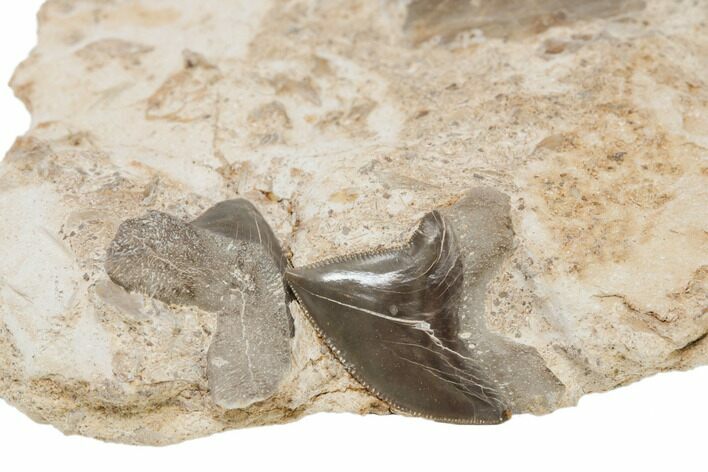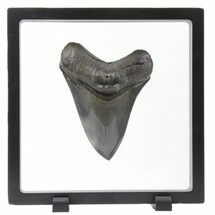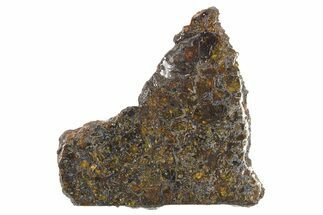This Specimen has been sold.
Three Fossil Crow Shark (Squalicorax) Teeth In Matrix - Kansas
This is a 3.2" wide plate of fossil crow shark (Squalicorax) teeth from the Smoky Hill Chalk (Niobrara Formation) in Gove County, Kansas. These serrated teeth are Late Cretaceous in age, or approximately 83 million years old. There are two teeth on one side of the rock, with a third that has been exposed on the back. An unidentified fossil (oyster?) preserved in association with these teeth.
It comes with an acrylic display stand.
It comes with an acrylic display stand.
Squalicorax would have had a body type very similar to today's grey sharks, but the teeth most closely resemble that of tiger sharks. It was likely a coastal predator, but there is evidence it was also a scavenger: a Squalicorax tooth was found embedded on the bone of a hadrosaur. Hadrosaurs were terrestrial dinosaurs, so that hadrosaur likely had died on land before being swept out to sea.
The Smoky Hill Chalk Member of the Niobrara Chalk formation is a Cretaceous conservation Lagerstätte, or fossil-rich geological formation, known primarily for its exceptionally well-preserved marine reptiles. It outcrops in parts of northwest Kansas--its most famous localities for fossils--and in southeastern Nebraska. Large, well-known fossils excavated from the Smoky Hill Chalk include marine reptiles such as plesiosaurs, large bony fish such as Xiphactinus, mosasaurs, pterosaurs, and turtles.
SPECIES
Squalicorax sp.
LOCATION
Gove County, Kansas
FORMATION
Niobrara Formation - Smoky Hill Chalk
SIZE
Entire specimen: 3.2 x 3". Largest tooth: .9" long
CATEGORY
SUB CATEGORY
ITEM
#197487
We guarantee the authenticity of all of our specimens.
 Reviews
Reviews













